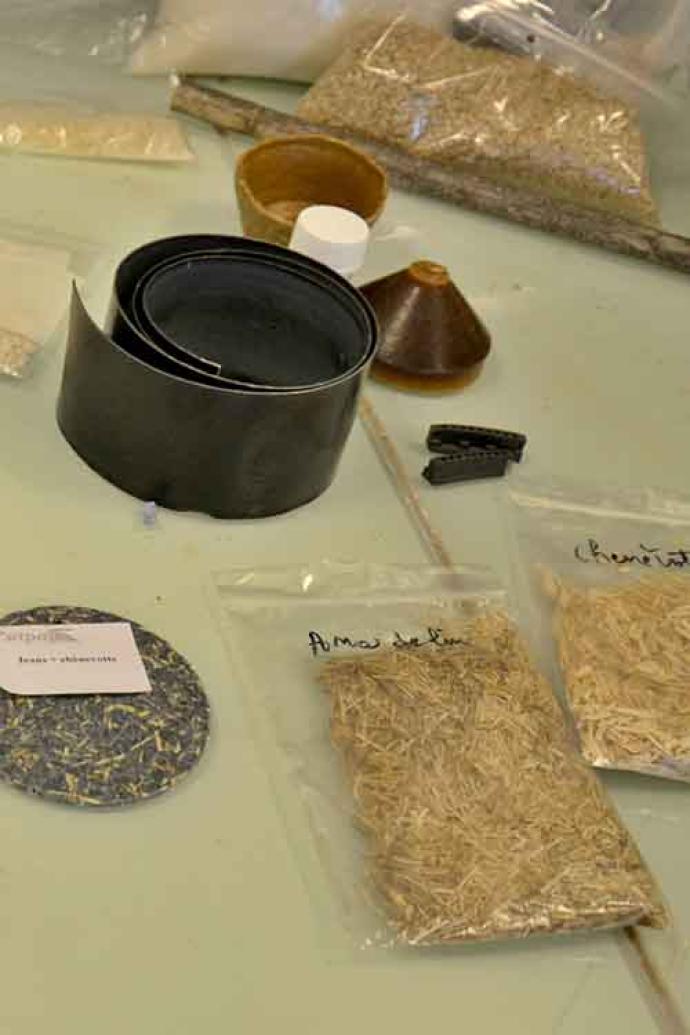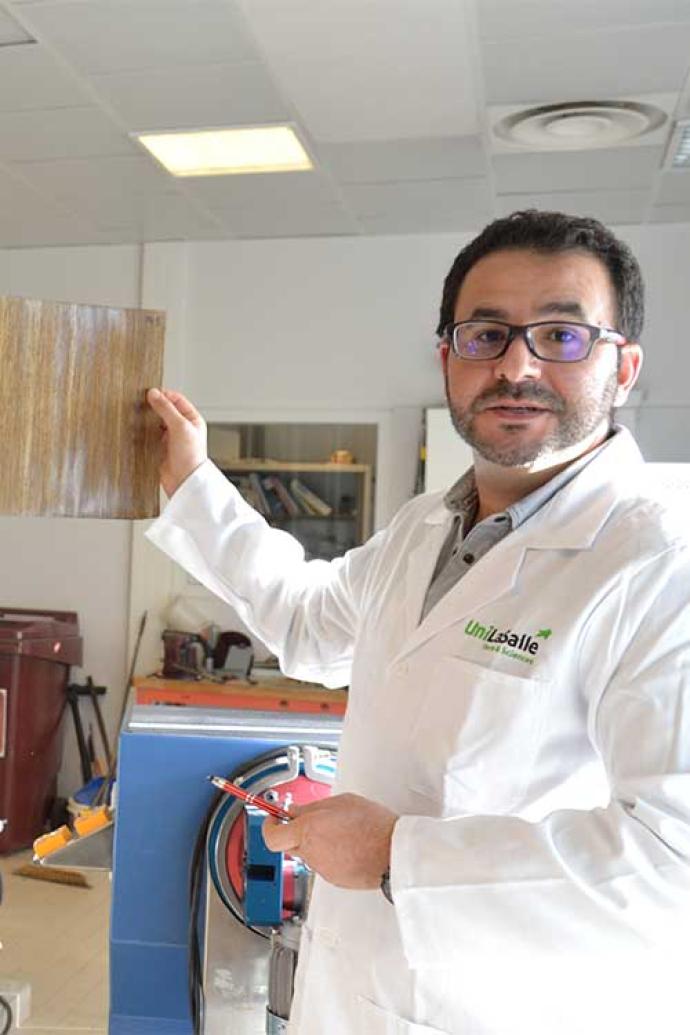Today's ecological and energy transition issues, combined with the digital transition, require a rethinking of production systems, and challenge higher education and research establishments (ESR) in terms of the knowledge and know-how they need to pass on to students. UniLaSalle is already involved in a number of activities that link the "Industrial" and "Agricultural" worlds, with a view to contributing to technological innovation and supporting the biomass production and valorization sectors in the face of these new challenges.
To take things a step further, UniLaSalle is launching the Normandy Agro-Resources and Biosourced Materials Industrial Chair.
SOCIETAL CHALLENGES: DESIGNING DIFFERENTLY WITH OUR PLANT RESOURCES
- Develop new filières of "green construction" with low environmental impact in the Normandy region.
- Optimize the valorization of agricultural products, guarantee deposits and secure the supply and quality of raw materials.
- Train tomorrow's managers in non-food biomass recovery and biosourced materials.
- Definish a systemic, multidisciplinary approach to each challenge.

Cultural, technological and organizational challenges:
- Securing supplies of plant-based raw materials.
- Ensuring the performance of materials that meet sustainable development principles and comply with building materials legislation.
- Integrate the architectural potential of natural, healthy, warm and virtuous materials.
- Master construction site implementation processes, and provide training in the associated trades.
- Anticipate the ecological footprint of bio-sourced materials.
- Create an incubator for training and collaborative R&D projects
Agro R Tech competence center
- Quality and variability of agro-resources
- Technological transformation processes
- Chemical formulations and implementation
- Characterization of processed materials and uses

- Co-construct an initial training program from 2019-2020 with the creation of an international Master of Sciences (MSc) in collaboration with our European academic partners: in the UK (2 universities) and the Netherlands (2 universities).
- Co-construct with manufacturers the training of future professionals in these new green filières.
AMBIOS Chair partners
UNILASALLE
Engineering school specializing in agronomy & agro-industry, agriculture, food & health, earth & environmental sciences.
Because adding value to local agro-resources can generate alternative, sustainable outlets with high added value for farmers.
ESITC CAEN - École Supérieure d'Ingénieurs des Travaux de la Construction.
Because the green building filière has yet to be consolidated, the construction industry needs to offer innovative, technically viable and easily transferable solutions.
ENSA - Normandie École Nationale Supérieure d'Architecture de Normandie.
As society's demands evolve, so does architecture's approach to sustainable development, which means mastering new materials.
ISEL - Institut Supérieur d'Études Logistiques.
Because the development of a green construction filière naturally fits into the context of a circular economy on a territorial scale, the logistics component plays a part in the sustainability of this ecosystem.
PAREX GROUPE
A leading French player in industrial mortars
Because inventing together today the ecosystems that link farmers and manufacturers will enable us to produce tomorrow materials based on renewable, local resources with a low environmental footprint.
ECOTECHNILIN
French leader in non-woven products made from natural fibres
Because anticipating tomorrow's needs must drive innovation in bio-based agromaterials.